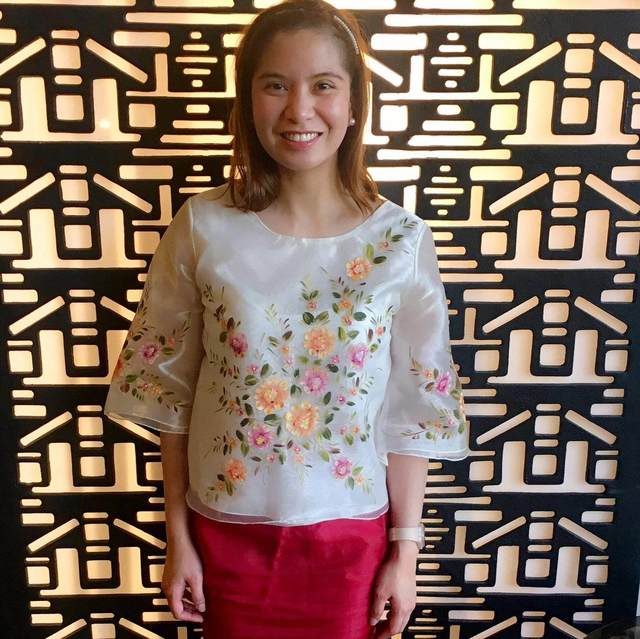SUMMARY
This is AI generated summarization, which may have errors. For context, always refer to the full article.
![[OPINION] Putting the May 13 elections in perspective](https://www.rappler.com/tachyon/r3-assets/612F469A6EA84F6BAE882D2B94A4B421/img/2820EEDA08FA4286BD36A2BDDE982644/may-elections-perspective-20190511.jpg)

The Philippine electoral system is still overwhelmingly focused on personalities instead of political parties. That is why there is nothing new with what we are seeing – extremely polarized views on politics with most people having no substantial basis for their political preferences except for familiarity and affinity.
People are drawn toward those whom they think they can relate to because there was never an alternative way to view politics in our country except for this. This is despite our experience with redemocratization after 1986. (READ: [OPINION] The ghosts of Martial Law)
But in the interest of the upcoming elections, I will not belabor the failure of the electoral system. (We will continue with conversations about reforms post-elections.) Instead, I want to focus on two things: elections as accountability tools, and how electoral engagement should open opportunities for widening and strengthening of social and political movements.
First, the concept of using elections as accountability mechanisms can be applied even in a system ridden with personality politics. In fact, the concept might even be easiest to grasp in this system, as it encourages people to assign blame on candidates for failures of the government and pin their hopes on those who can revert such failures.
At the risk of stating the obvious, let me reiterate that politicians are applying for jobs when they run for public office. In the course of their campaign, they make promises. Like how we remember when our family, friends, and/or girlfriends/boyfriends make promises, we should not forget too when politicians give us assurances in exchange for our votes.
Naturally, we allow people who make promises enough time to come through. When they do not, we ask them why; we press them to honor their word. That is accountability.
Jon Snow captures the idea and states it with much conviction in season 7 of Game of Thrones: “I’m not going to swear an oath I can’t uphold. When enough people make false promises, words stop meaning anything. Then there are no more answers, only better and better lies.”
Vote people out
They said that they would allow you to stay in your job after 6 months but you are now unemployed because your contract lapsed and your employer is not required to renew you. Vote them out.
They said that they would eradicate drugs in 6 months, but 3 years later, they said it could not be done. Vote them out.
They said they would provide free tertiary education but are unable to fund it. Vote them out.
They said that they hated people who ruined lives of children, but they try to lower the criminal liability of minor offenders to 9 years old. Vote them out.
They said rape was a heinous crime, but they keep degrading women publicly. Vote them out.
When you are in a bad relationship in the last 3 years, you should know that the chances of your partner changing for the better moving forward is low. At some point, apologies should not make the cut. Get out of the relationship. Be with someone who treats you right. Vote people out.
Second, the options of voters are limited because the electoral system is designed to benefit the political elite. Electoral victory is hinged on name recall. Because of this, candidates are forced to spend humongous sums of money in political marketing. This, in turn, breeds corruption, highlights political rhetoric, and departs from programmatic politics. Needless to say, those without money or political clout are unable to contend in this system.
This is the reason we need more inclusive political institutions to ensure that the interests of the poor, women, and marginalized are reflected in policy-making. The work toward this end should not cease.
But at the same time, we should not fail to recognize that extractive political institutions and authoritarian regimes can similarly force societies to remember and reaffirm their values, and define their moral boundaries.
This recognition, historically, has translated into social and political movements that pushed for broader democratic spaces and minority representation in governance. And we are not lacking in experience. We should not only look at May 13, 2019; we should look ahead.
We should not just be sentimental about the experience we had in the last couple of months campaigning for issue-based politics. There is a long road ahead, and the work is not over. Voters need to commit to sustaining the movement for reform politics. (READ: To the youth: Let’s be the change our nation needs)
Thus, 2019 is a great opportunity to harness and direct the energies of voters toward more organized forms of political engagement in the future. Regardless of results, 2019 should strengthen the position of the social and political movements in increasing the quality of political discourse and participation of the masses in elections and governance work.
In the end, may we always be reminded that the glass is always half full, and no matter the situation, we can always look for small openings to defend and fight for our democracy. – Rappler.com
Paula Bianca Lapuz is a person with disability who currently serves as a lecturer for social science subjects at a university and engages in consultancy work for inclusive development policies.
Add a comment
How does this make you feel?
There are no comments yet. Add your comment to start the conversation.